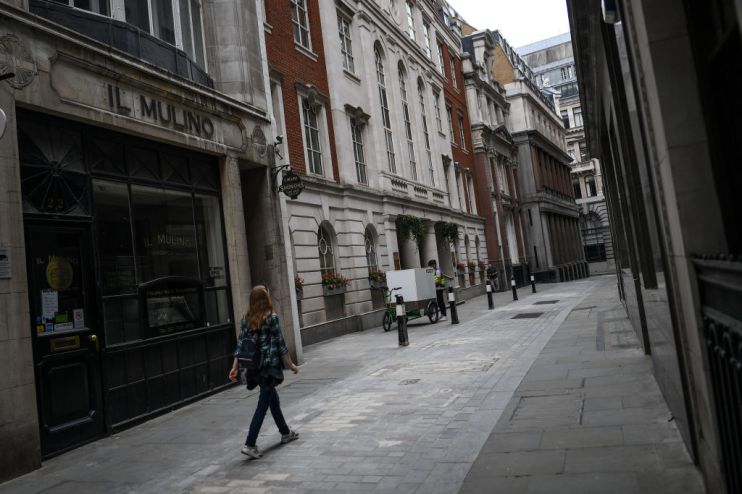UK economy: Job adverts fall while retail footfall flatlines

The UK’s economic recovery appeared to slow somewhat over the last few weeks, according to official data, with the number of online job adverts falling and retail footfall staying roughly flat.
Britons gradually headed back to the office, however, with the number of people working remotely falling.
In the week to 4 September, total online job adverts fell from 55 per cent to 50 per cent of their 2019 average, according to the Office for National Statistics’s (ONS) analysis of postings on job website Adzuna.
The fall in job adverts suggests that the labour market is worsening. It comes as firms lay off workers at a rapid pace: around 125,000 jobs have been lost in retail this year alone.
Meanwhile, in the week starting 31 August, overall footfall in UK retail destinations stayed at around 75 per cent of its level a year ago.
“This indicates a flattening off from the gradual but steady increase in footfall since the reopening of non-essential shops and businesses in England on 15 June,” the ONS said.
Workers gradually return to the office
However, there were some signs of increased activity. The ONS said 36 per cent of employees were working remotely in the two weeks to 23 August (the latest available data). That was down from 39 per cent in the fortnight to 9 August.
The fall in remote working meant 49 per cent of people were back at their normal place of work. The figures will please the government, which has been worried about the impact of working from home on city centres.
In the two weeks to 23 August, 11 per cent of the UK workforce were still on partial or furlough leave. That was up from 13 per cent in the previous two weeks.
It is not yet clear the extent to which people coming off furlough have returned to work or been laid off. The furlough scheme is set to wind down in October and economists are warning that it will trigger a wave of unemployment.
In the arts, entertainment and recreation industries, 41 per cent of people were furloughed compared to 51 per cent two weeks earlier.